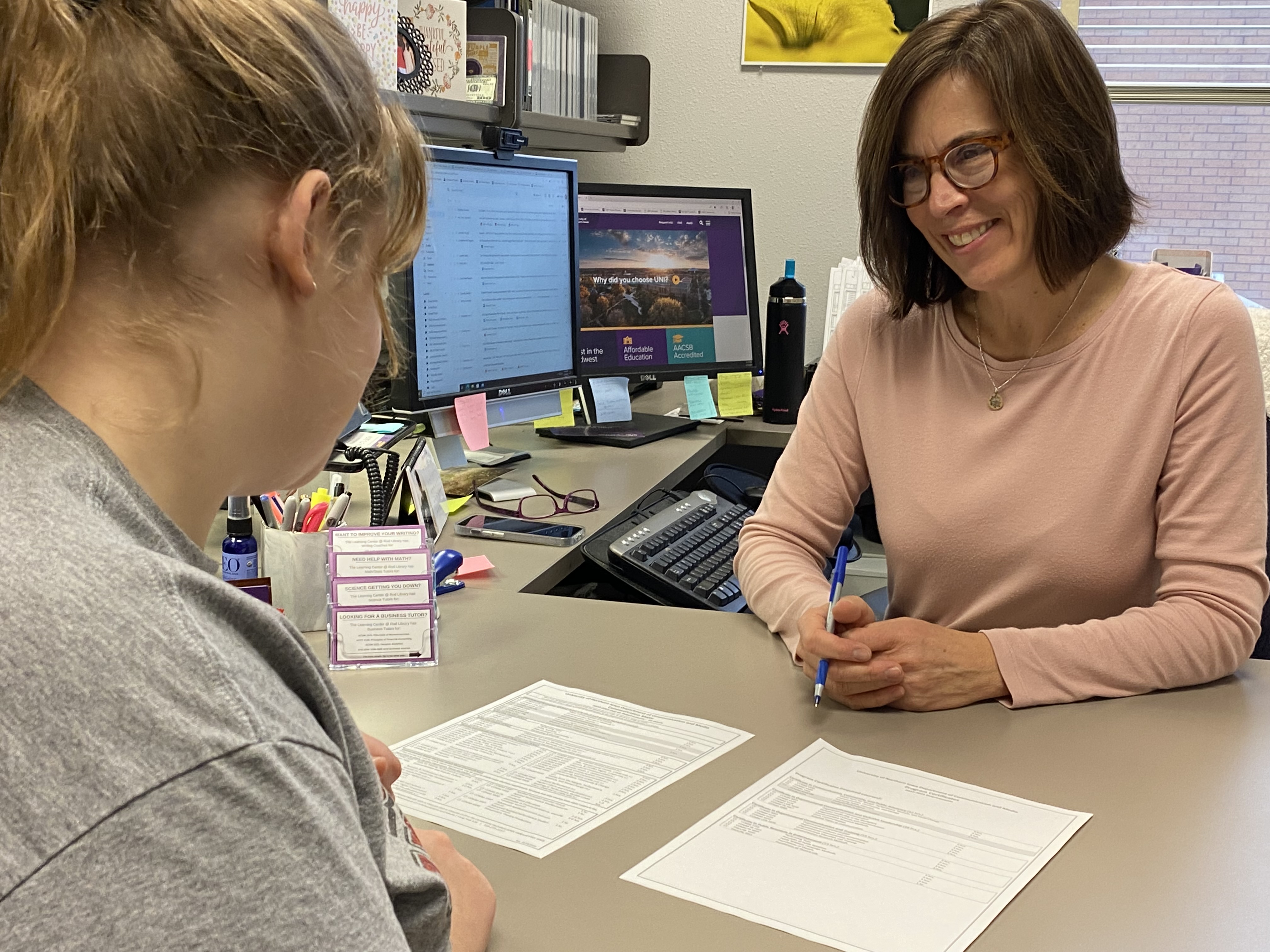Advising Responsibilities
Students in the Department of Communication and Media are expected to assume responsibility for planning their academic program in conjunction with their academic advisor and in accordance with the college rules and policies and with the departmental major requirements. Any questions should be directed to the Professional Academic Advisors.
Academic advising is an educational process that, by intention and design, facilitates students’ understanding of the meaning and purpose of higher education and fosters their intellectual and personal development toward academic success and lifelong learning.
Three R’s of Advising

Relationships
- Remember advising is a two-way street
- Foster open communication
- Build a connection
- Clarify your values, interests, and goals

Responsibility
- Schedule regular visits
- Take ownership of your education
- Follow through with tasks

Resources
- Learn policies, procedures, and requirements
- Take advantage of opportunities
- Read your email!!

Working With your Advisor
The relationship between you and your advisor is one of shared responsibility. Though you are ultimately responsible for the choices you make in college, we realize that in order to make informed decisions, you need mentoring and advice from an academic advisor and others in the University community.
Your primary advisor is your primary resource regarding academic issues, opportunities, and programs. If you keep your advisor informed about your interests, progress, concerns and decisions, he or she will be able to assist you better.
Your responsibilities:
1. To seek sources of information that will assist you in making academic/career decisions.
2. To keep your advisor informed about changes in your academic progress, course selection, and academic/career goals.
3. To be familiar with the requirements of the major (s) which you are pursuing, and to schedule courses each Semester in accordance with those requirements.
4. To be aware of the prerequisites for each course that you include in your semester schedule and to discuss with your advisor how prerequisites will affect the sequencing of your courses.
5. To follow university procedures for registering courses and for making adjustments to your class schedule.
6. To observe academic deadlines.
7. To carefully review each course syllabus, noting rules, regulations, and policies for each class.
8. To participate fully in the courses for which you are registered by completing assignments on time and attending class.
9. To understand the information provided you by the university, including your grade reports and advisement reports and to know what to do in case you have a missing grade or one that you think may be incorrect.
10. To understand academic performance standards, academic probation, academic dismissal, and to know GPA requirements.
11. To change your address with the registrar if needed and to read all university mail, including e-mail.
12. To organize official university documents (catalog, schedule of classes, degree audits, etc.) in a way that enables you to access them when needed.
Advisor's responsibilities:
1. To clarify university policies, regulations, programs, and procedures about which you may have questions.
2. To be available to meet with you each semester—if you respond promptly to the invitation to schedule meetings.
3. To help you explore your interests, abilities, and goals and to relate them to academic majors.
4. To offer advice on selecting courses and to assist you in developing an academic plan that satisfies your degree requirements.
5. To be knowledgeable about career opportunities and to refer you to Career Services as needed.
6. To be a responsive listener and to refer you to appropriate support services within the university when needed.
7. To discuss with you your academic performance and the implications of your performance for the undergraduate programs, graduate programs, and any professional programs you desire to pursue.
8. To offer you the opportunity to participate in a mentoring relationship which will help you become more independent and self-directed.
The Department of Communication and Media cannot assume responsibility for problems resulting from students failing to follow the policies stated in the catalog or from incorrect advice given by someone other than the appropriate staff member of the department.
Although the student handbook has been prepared with care in order to assist students in planning their Program of Study, the UNI catalog governs all curriculum and policy issues. Thus, in the unlikely event of misunderstanding, the UNI catalog will be the final authority. Available at www.uni.edu/catalog.
